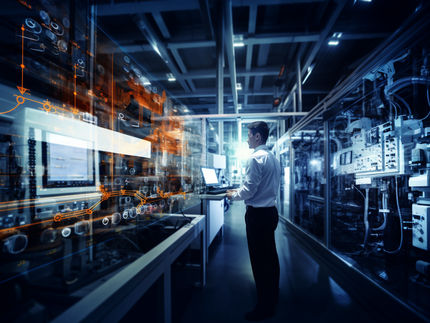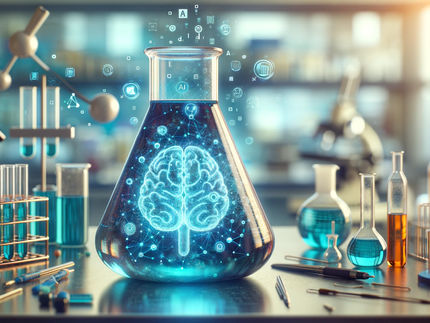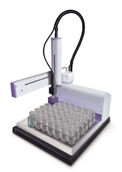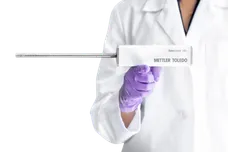Birmingham spinout begins commercialisation for a technology that will make manufacturing more sustainable
Technology allows to monitor what is going on inside production pipes in real-time, without having to halt production
Advertisement
University of Birmingham spinout Rheality has partnered with Clean Engineering to commercialise a ‘smart’ AI-based system that will significantly optimise fluid production by reducing power consumption and raw material wastage while maximising throughput and product quality in the Food, Oil & Gas, FMCG and Chemicals sectors.
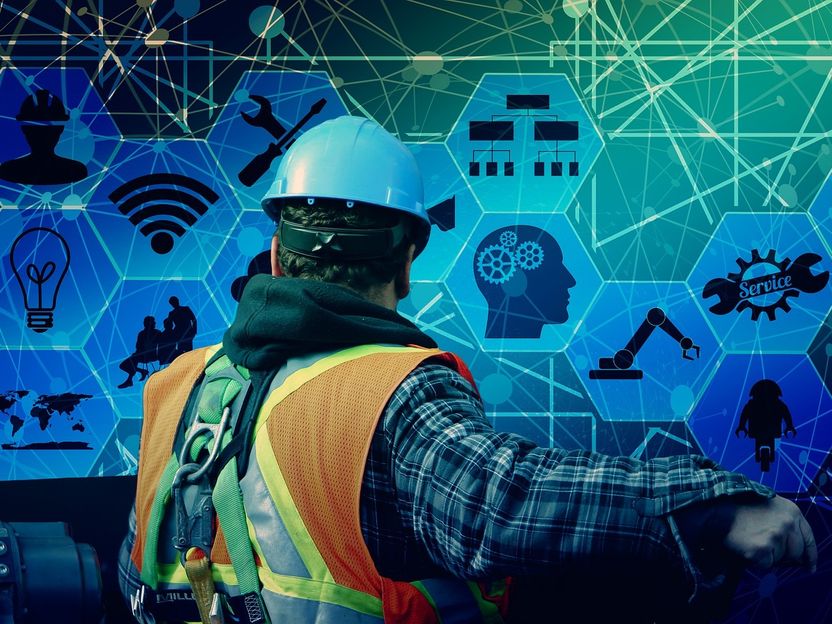
Symbolic image
pixabay.com
By measuring how fluids flow and mix through production lines, Rheality’s intelligent sensing system aims to replace process control techniques that have remained unchanged for decades, whereby manufacturing plants can only test what’s in their pipes by halting production, which leaves production lines idling while testing takes place. Moreover, when traditional test results reveal inadequate processing or substandard products, batches may need to be re-worked or even scrapped, resulting in waste of raw materials and yet more energy used to prepare a new batch.
Rheality’s technology allows manufacturers to monitor what is going on inside production pipes in real-time, without having to halt production. This hitherto inaccessible real-time information allows them to continuously fine tune their production processes, optimising the use of both energy and materials.
The system uses an easily retrofitted passive probe, located inside the pipe, that vibrates according to the fluid flowing around it and generates a fluid ‘fingerprint’, a sensor then converts these vibrations into an electrical signal and machine learning intelligent algorithms acquire, analyse and convert the signal into a continuous feed of actionable information.
The technology was first presented to industry in a series of webinars in 2020, prior to the company spinning out from the University of Birmingham. This initial publicity resulted in several multinational companies requesting technology trials, allowing Rheality to choose which companies to partner with for proof-of-concept studies.
Trials in large-scale manufacturing plants in the Chemicals, Oil & Gas and Food industries, in the UK, Norway, Germany, Spain and North America are now rapidly heading towards completion.
Dr Francesco Colacino, Rheality co-Founder and Executive Director, said: “These trials revealed immediate benefits for our customers, ranging from product quality monitoring to process optimisation. Reducing energy consumption is only the first step in this revolution in fluid production efficiency. Our self-calibrating machine learning algorithm allows bespoke measurements, which respond to our client’s specific needs. Not only does data analysis get better over time - and processes can be controlled at more granular level, but customers can also choose what to measure wherever they want along their piping systems. Driving efficiencies in, for instance, end-point mixing, will steadily reduce costs while increasing productivity even further with longer use.”
The Rheality system is fluid agnostic, so can be deployed in production that includes single phase or multiphase environments such as emulsions, oils, gases, slurries, or water, and where the fluid flow is laminar, turbulent or transient. It can be used with any pipe size and even in the most demanding working conditions, such as high acidity or pressure. It is therefore suitable for critical parts of manufacturing processes that have historically proved difficult to monitor.
Francesco Colacino added: “We have a streamlined and simplified process for installation that will offer a major benefit to future customers. This was developed and tested in trials that ran through periods of Covid travel restrictions and prolonged shut-downs, proving that the system can be installed quickly and operated remotely.”
Clean Engineering offers wrap-around support for early-stage engineering businesses that are developing a sustainable technology. Clean Engineering provides a proven structured product, market and business development process - called the Green Staircase – incorporating management tools, mentoring, expertise and investment. They also provide Rheality with offices and workshops at The Proving Factory in Coventry, alongside Productiv, a specialist engineering services company that offers a full range of product development services and flexible manufacturing support.
Richard Bruges, Clean Engineering Director, commented: “We are highly selective about the technologies we support and only choose those that have a positive impact on the climate crisis, as well as the potential to deliver real value to customers and investors. This is the second time we have invested in a University of Birmingham spinout and our decision was driven by the chemistry with the founders, the demonstrable appetite from customers and the ability of the system to reduce waste and drive up the productivity of production lines.”
Rheality is based at the Proving Factory in Coventry, U.K. The company’s founders include co-inventors Prof Federico Alberini, Mr Daniel Hefft, Dr Giuseppe Forte from the University’s School of Chemical Engineering, and innovation and technology transfer specialist Dr Francesco Colacino.
Other news from the department business & finance
These products might interest you
Most read news
More news from our other portals
Something is happening in the chemical industry ...
This is what true pioneering spirit looks like: Plenty of innovative start-ups are bringing fresh ideas, lifeblood and entrepreneurial spirit to change tomorrow's world for the better. Immerse yourself in the world of these young companies and take the opportunity to get in touch with the founders.



